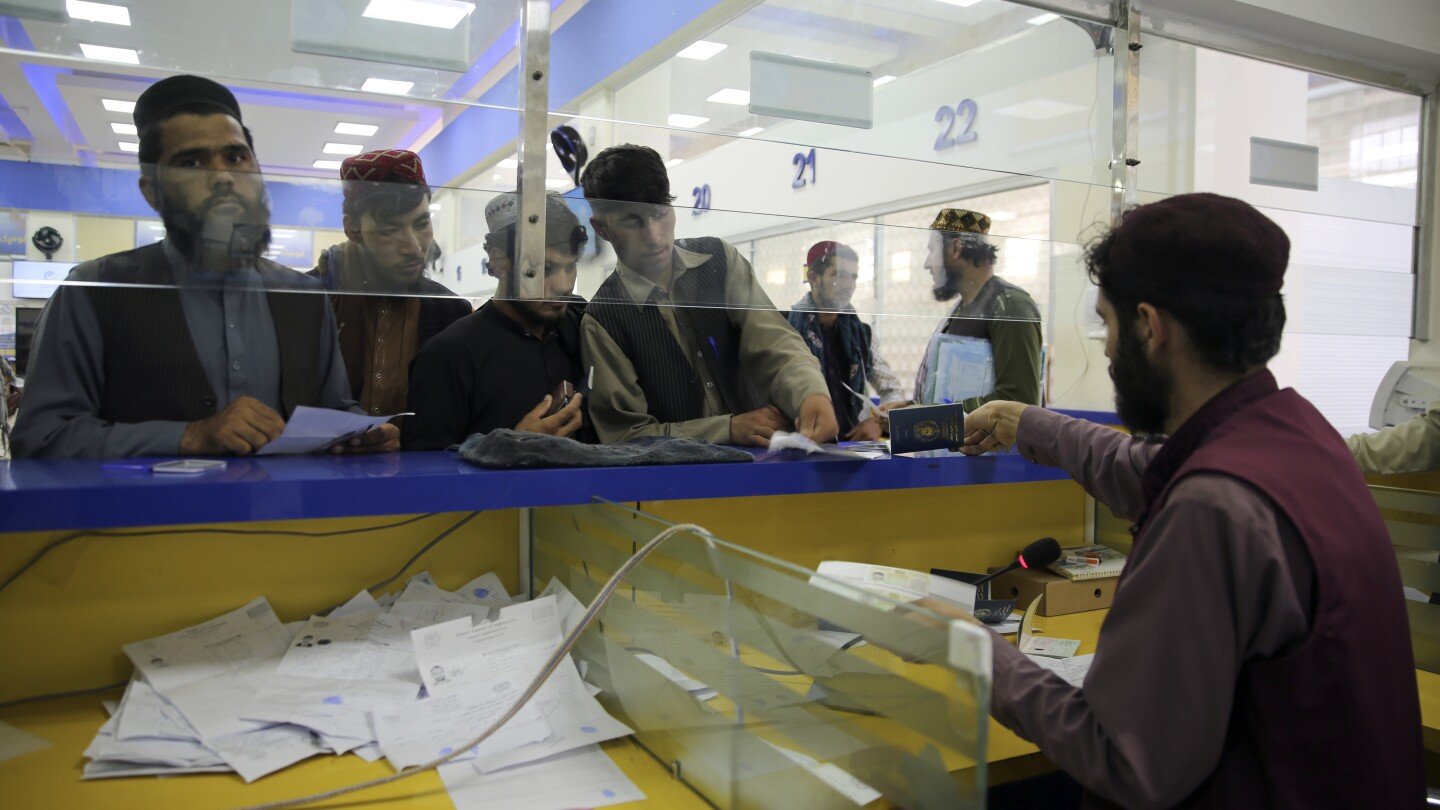KABUL, Afghanistan (AP) — In parts of Afghanistan where there are no street names or house numbers, utility companies and their customers have adopted a creative approach for connecting. They use mosques as drop points for bills and cash, a “pay and pray” system.
Now the national postal service wants to phase this out by putting mailboxes on every street across the country, part of a plan to modernize a service long challenged by bureaucracy and war.
The lofty aspirations include introducing access to shopping via e-commerce sites and issuing debit cards for online purchases. It will be a leap in a country where most of the population is unbanked, air cargo is in its infancy and international courier companies don’t deliver even to the capital, Kabul.
The changes mean Afghans will pay higher service fees, a challenge as more than half the population already relies on humanitarian aid to survive.
The Afghan Post, like much of the country, still does everything on paper. “Nobody uses email,” said its business development director, Zabihullah Omar. “Afghanistan is a member of the Universal Postal Union, but when we compare ourselves to other countries it is at a low level and in the early stages.” . . Post offices in Afghanistan are vital for women wanting to access services or products they would otherwise be denied, since they are often barred from entering ministries or other official premises.
But the spectre of the Taliban’s edicts targeting women and girls also looms at the Afghan Post.
At the entrance to the main Kabul branch, a sign tells women to correctly wear hijab, or the Islamic headscarf. One picture shows a woman with a red cross over her visible face. The other has a green check mark over the face because only her eyes are seen.



This is the best summary I could come up with:
The lofty aspirations include introducing access to shopping via e-commerce sites and issuing debit cards for online purchases.
It will be a leap in a country where most of the population is unbanked, air cargo is in its infancy and international courier companies don’t deliver even to the capital, Kabul.
Post offices in Afghanistan are vital for women wanting to access services or products they would otherwise be denied, since they are often barred from entering ministries or other official premises.
At the entrance to the main Kabul branch, a sign tells women to correctly wear hijab, or the Islamic headscarf.
She wanted to get her documents certified, a practical measure amid the country’s precarious economic situation and the sweeping restrictions on women and girls.
Hamid Khan Hussain Khel is one of the country’s 400 postmen, zipping around the capital on a motorcycle bearing Afghan Post’s jaunty blue and yellow.
The original article contains 734 words, the summary contains 150 words. Saved 80%. I’m a bot and I’m open source!